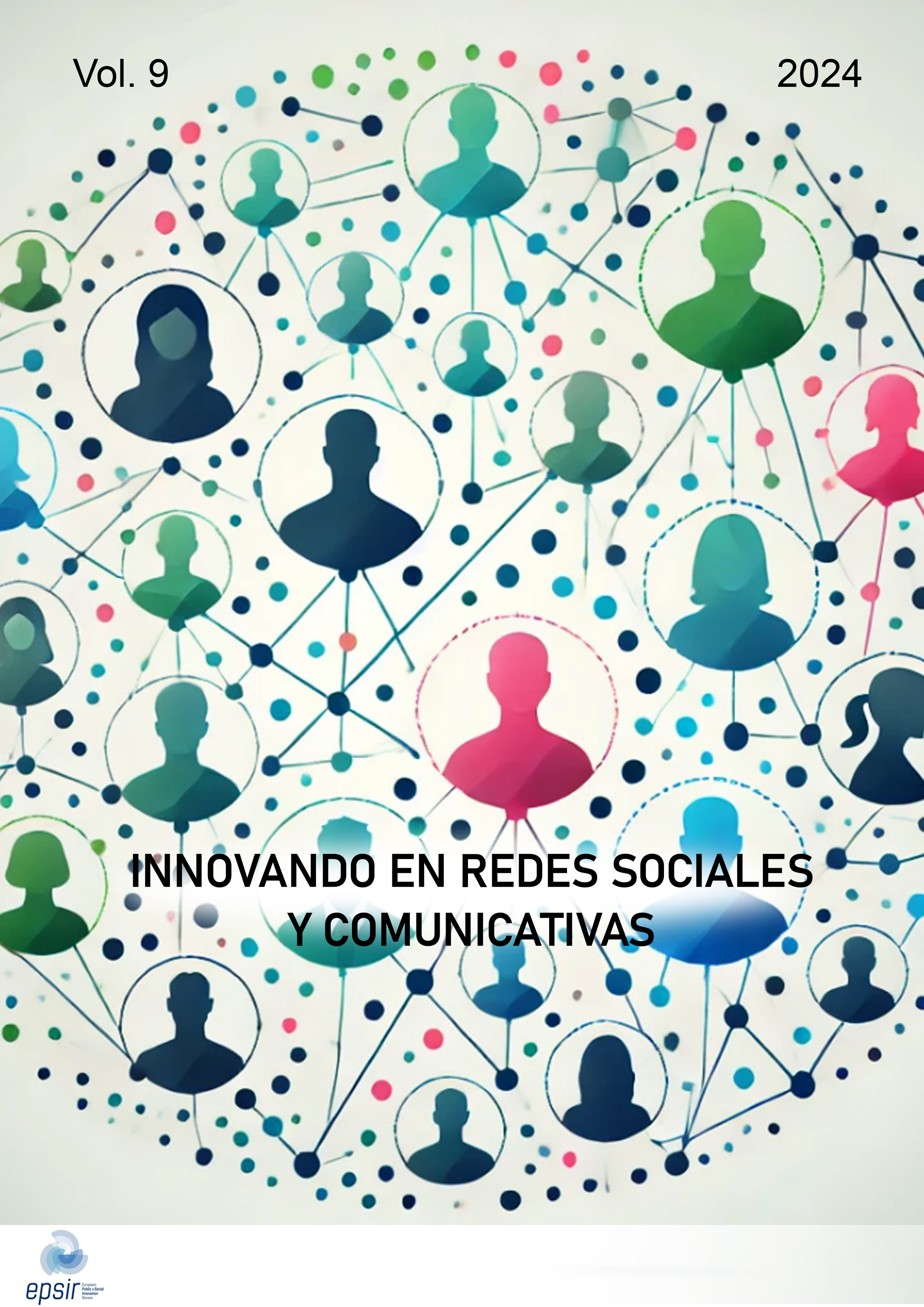Innovating in social and communication networks
DOI:
https://doi.org/10.31637/epsir-2024-1742Keywords:
Influencer marketing, Digital violence, Social networks, Pop culture, Digital educationAbstract
This monograph explores innovations in social networks and communication practices in the current digital context, analyzing how new narratives are shaping public opinion and social identity. It highlights the impact of emotions on platforms such as Instagram, TikTok, or X, and the role of influencer marketing in advertising and digital journalism. Additionally, it addresses the challenges and opportunities presented by platforms like Twitch and YouTube in journalism, as well as the impact of gender-based violence and online harassment on social media. The study of emerging narrative formats such as vodcasting, the dynamics of radicalization in messaging platforms, and the influence of social networks on youth culture and electoral movements are also key topics. Finally, the use of ICT in higher education and social movements is explored.
Downloads
References
Fernández, M. y Sánchez, D. (2020). Violencias de género en redes sociales: Análisis de las dinámicas misóginas en Twitter. Journal of Gender Studies, 19(2), 55-70.
González, J. y Martínez, P. (2022). La influencia del marketing digital en el sector de la moda: Un estudio de caso. Journal of Digital Marketing, 28(1), 34-56.
López, R. (2021). Vodcasting y narrativas en el periodismo audiovisual: El caso de RTVE. Comunicación Audiovisual, 19(4), 76-89.
Pérez, A. (2023). Twitch y la televisión de la generación Z: Nuevas formas de consumir información. Revista de Comunicación Digital, 22(3), 100-113.
Rodríguez, L. y García, S. (2023). La semiótica digital y las emociones en redes sociales: Nuevas formas de comunicación emocional. Revista de Comunicación y Tecnología, 14(2), 45-67.

Downloads
Published
How to Cite
Issue
Section
License
Copyright (c) 2024 Carmen Cristófol Rodríguez, Xabier Martínez Rolán, Juan Enrique Gonzálvez Vallés

This work is licensed under a Creative Commons Attribution-NonCommercial-NoDerivatives 4.0 International License.
Authors who publish with this journal agree to the following terms:- Authors retain copyright and grant the journal right of first publication with the work simultaneously licensed under Creative Commons Non Commercial, No Derivatives Attribution 4.0. International (CC BY-NC-ND 4.0.), that allows others to share the work with an acknowledgement of the work's authorship and initial publication in this journal.
- Authors are able to enter into separate, additional contractual arrangements for the non-exclusive distribution of the journal's published version of the work (e.g., post it to an institutional repository or publish it in a book), with an acknowledgement of its initial publication in this journal.
- Authors are permitted and encouraged to post their work online (e.g., in institutional repositories or on their website) prior to and during the submission process, as it can lead to productive exchanges, as well as earlier and greater citation of published work (See The Effect of Open Access).


